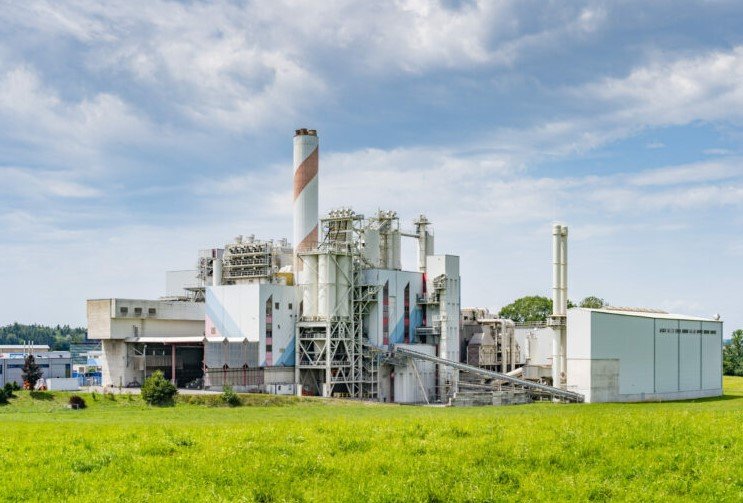Italy’s energy giant Eni has agreed to sell a 49.99 percent stake in its carbon capture, utilization, and storage business to Global Infrastructure Partners, a unit of BlackRock. The deal, announced on August 18, 2025, aims to speed up projects that cut carbon emissions across Europe and boost clean energy efforts.
Key Details of the Agreement
Eni and Global Infrastructure Partners signed the definitive agreement after months of talks that started with an exclusivity pact in May 2025. This move lets both companies share control of Eni CCUS Holding, a key player in trapping and storing carbon dioxide from industries.
The stake sale focuses on building a stronger platform for carbon capture technology. It includes rights to join future projects tied to Eni’s old oil and gas fields once rules and markets line up. Experts see this as part of a bigger trend where energy firms team up with investors to fund green tech.
Global Infrastructure Partners brings its know-how in building pipelines and storage sites. Eni keeps a slight edge with 50.01 percent ownership, ensuring it guides the direction while gaining fresh capital.

Major Projects in the Pipeline
Eni CCUS Holding runs several big efforts to store carbon underground or reuse it. These span the UK, Netherlands, and Italy, targeting hard-to-cut emissions from factories and power plants.
The Liverpool Bay project in the UK stands out. It plans to reuse old gas fields under the sea to store CO2 from northwest England and north Wales. This includes 149 kilometers of pipelines, both new and repurposed, to move captured carbon safely.
Another key site is Bacton in the UK, which links to energy hubs for storage. In the Netherlands, the L10 project uses offshore spots for similar goals. Looking ahead, the Ravenna CCS in Italy could join once local laws allow.
- Liverpool Bay: Focuses on HyNet Cluster for CO2 transport and storage in depleted reservoirs.
- Bacton: Supports decarbonization in eastern England with pipeline networks.
- L10: Offshore storage in the North Sea for Dutch industries.
- Ravenna: Potential future addition in Italy for Mediterranean emissions control.
These projects could store millions of tons of CO2 each year, helping meet global climate targets.
Leaders Share Their Views
Eni’s chief executive, Claudio Descalzi, called the deal a smart step to grow their green business. He said it fits Eni’s plan to bundle transition projects and draw in partners who share the vision for lower emissions.
Global Infrastructure Partners’ chairman, Bayo Ogunlesi, praised Eni’s skills in running complex operations. He noted how their infrastructure experience pairs well with Eni’s tech edge to roll out carbon capture faster.
Industry watchers point out this mirrors other recent moves, like the UK’s 21.7 billion pound push for carbon capture in Teesside starting mid-2025. Such partnerships show growing investor interest in clean tech amid rising calls for net-zero goals by 2050.
Why This Matters for Global Decarbonization
Carbon capture plays a vital role in fighting climate change, especially for sectors like steel and cement that cannot easily switch to renewables. The global CCUS market is set to grow from about 2 billion dollars now to over 100 billion by 2030, driven by policies in Europe and beyond.
This deal could unlock billions in funding for new sites, creating jobs and cutting pollution. For instance, Liverpool Bay alone might handle emissions equal to millions of cars each year.
However, challenges remain, such as high costs and the need for better regulations. Critics worry about over-reliance on capture tech instead of reducing fossil fuel use, but supporters argue it bridges the gap to a low-carbon future.
| Project Name | Location | Key Features | Expected Impact |
|---|---|---|---|
| Liverpool Bay | UK | 149 km pipelines, offshore storage | Stores CO2 from industrial clusters |
| Bacton | UK | Repurposed infrastructure | Supports regional decarbonization |
| L10 | Netherlands | North Sea reservoirs | Targets Dutch heavy industries |
| Ravenna | Italy | Future acquisition right | Expands to Mediterranean area |
Looking Ahead to Expansion
The partnership opens doors for more projects worldwide, potentially adding spots in Asia or North America as demand rises. Eni aims to use this model for other green ventures, like biofuels, to attract more capital.
With climate talks heating up, deals like this signal a shift toward practical solutions. Investors see CCUS as a safe bet for steady returns while aiding the planet.
What do you think about this stake sale and its role in clean energy? Share your thoughts in the comments and pass this article along to spark discussion.








